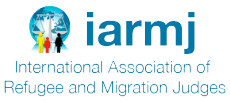The plaintiffs were granted leave to apply for the review of the decision of the Refugee Committee, which had revoked the plaintiffs refugee status and also the order deporting the plaintiffs. The court granting leave for the review application, also granted a stay of the deportation order, this would allow the plaintiffs to enjoy their refugee status until the appeal is heard.
The first issue to be decided was whether or not the court had to strike out the proceedings. The court considered the fact that the plaintiffs failed to make certain material disclosures, including that the defendant had already deported them and declared them illegal immigrants. Moreover, the plaintiffs did not inform the court that after they had unlawfully returned to Malawi, despite their deportation. In addition, the evidence before the court supported the fact that the plaintiffs posed a risk to national security and threatened public order.
Malawi signed and ratified the 1951 Convention Relating to the Status of Refugees, which provides in Article 32 that a State may not expel a refugee lawfully in its territory, save on the grounds of national security and public order.
The court found that it was clear that the plaintiffs were properly expelled and therefore not lawfully present in Malawi, thus they had no rights to be protected.
The application by the defendants was thus allowed.
Prohibited refugees; deportation; expulsion of refugees
The applicants were granted refugee status by the Malawian government and were held at the Dzaleka Camp in that country. It later became apparent that they were of unruly behaviour and caused several problems for the government in their time there. Writing numerous letters to foreign embassies, the UNHCR Headquarters in Geneva, Human Rights Organizations, among others accusing the government of being corrupt and abusing human rights. The plaintiffs were later convicted of intimidation and later brought before the Refugee Committee to show why they should not be stripped of their refugee status and deported. They were subsequently served with revocation letters and deported.
Application for judicial review allowed; each party to pay their own costs.
The application allowed on the basis that the plaintiffs were not legally present in the territory of Malawi and thus had no standing to bring the matter to court. Moreover, they were not refugees for the purposes of the Convention, since their refugee status was properly revoked and they were properly expelled from Malawian territory.
